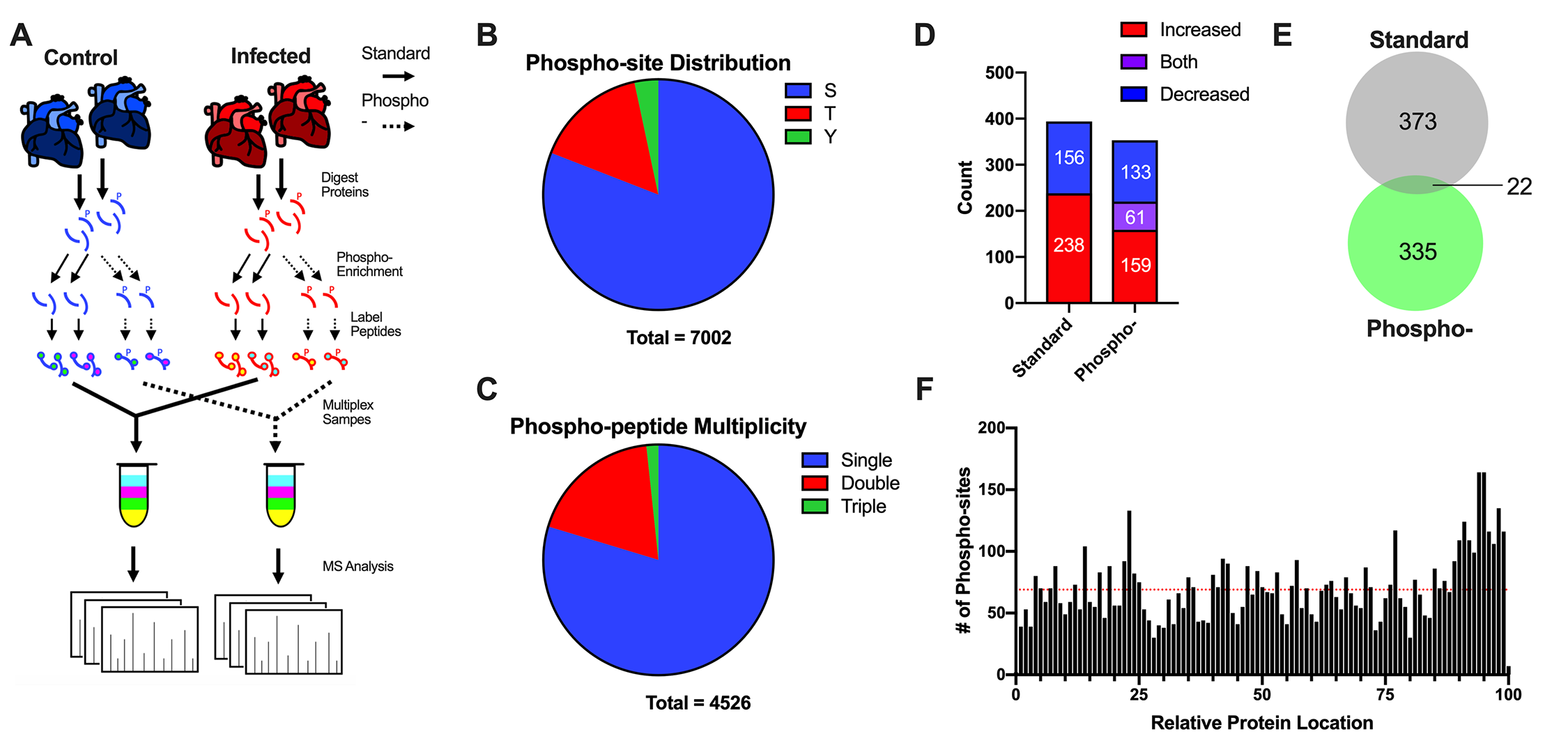On July 9, 1878, Carlos Ribiero Justiniano Chagas was born on a coffee farm in Brazil. Carlos would go on to become a physician and work in the tropical medicine field and coordinate the response role in combating the 1918 influenza pandemic in Brazil.
Fast forward to present day, Chagas disease, a disease he first characterized in 1909, caused by the Trypanosoma cruzi parasite now afflicts 6 to 8 million people worldwide. While endemic to Central and South America, many countries in Europe, the United States, Japan, and Australia also have Chagas disease burden including an estimated 100,000 cases in Europe and 300,000 in the United States.
Just last month, Mr. Jacob M. Wozniak et al. published this peer-reviewed research article on the study of proteins and protein modifications upregulated in mice infected with Trypanosoma cruzi. The authors summarize:
“For the first time, this study provides insight into the in vivo host signaling responses to T. cruzi in the heart, uncovering pathways that can be validated for contributions to disease and suitability as drug targets…
This study provides molecular insight into host proteome and phospho-proteome responses to T. cruzi infection in the heart for the first time, highlighting pathways that can be further validated for functional contributions to disease and suitability as drug targets.”
AUTHORS: Jacob M. Wozniak, Tatiana Araújo Silva, Diane Thomas, Jair L. Siqueira-Neto, James H. McKerrow, David J. Gonzalez, and Claudia M. Calvet
AUTHOR SUMMARY: Chagas disease is a significant human health concern as it can cause severe cardiomyopathies in chronically infected patients. Due to the high morbidity associated with Chagasic cardiomyopathies, it is vital to investigate new treatment options. In this study, we use state-of-the-art techniques to interrogate the host signaling events induced by chronic Chagas disease in the primary affected organ, the heart. We identify proteins and phospho-sites significantly altered upon infection, predict activated and inhibited kinases, and link our findings to known drug targets. For the first time, this study provides insight into the in vivo host signaling responses to T. cruzi in the heart, uncovering pathways that can be validated for contributions to disease and suitability as drug targets.
ABSTRACT: Chagas disease, the clinical presentation of T. cruzi infection, is a major human health concern. While the acute phase of Chagas disease is typically asymptomatic and self-resolving, chronically infected individuals suffer numerous sequelae later in life. Cardiomyopathies in particular are the most severe consequence of chronic Chagas disease and cannot be reversed solely by parasite load reduction. To prioritize new therapeutic targets, we unbiasedly interrogated the host signaling events in heart tissues isolated from a Chagas disease mouse model using quantitative, multiplexed proteomics. We defined the host response to infection at both the proteome and phospho-proteome levels. The proteome showed an increase in the immune response and a strong repression of several mitochondrial proteins. Complementing the proteome studies, the phospho-proteomic survey found an abundance of phospho-site alterations in plasma membrane and cytoskeletal proteins. Bioinformatic analysis of kinase activity provided substantial evidence for the activation of NDRG2 and JNK/p38 kinases during Chagas disease. A significant activation of DYRK2 and AMPKA2 and the inhibition of casein family kinases were also predicted. We concluded our analyses by linking the diseased heart proteome profile to known therapeutic interventions, uncovering a potential to target mitochondrial proteins, secreted immune effectors and core kinases for the treatment of chronic Chagas disease. Together, this study provides molecular insight into host proteome and phospho-proteome responses to T. cruzi infection in the heart for the first time, highlighting pathways that can be further validated for functional contributions to disease and suitability as drug targets.
AUTHOR AFFILIATIONS:
Jacob M. Wozniak
ROLES Conceptualization, Data curation, Formal analysis, Funding acquisition, Investigation, Methodology, Resources, Software, Writing – original draft, Writing – review & editing
AFFILIATIONS Skaggs School of Pharmacy and Pharmaceutical Sciences; University of California San Diego; La Jolla, CA, United States of America, Department of Pharmacology; University of California San Diego; La Jolla, CA, United States of America
http://orcid.org/0000-0002-2453-0861
Tatiana Araújo Silva
ROLES Investigation
AFFILIATION Cellular Ultrastructure Laboratory; Oswaldo Cruz Institute, FIOCRUZ; Rio de Janeiro, RJ, Brazil
Diane Thomas
ROLES Investigation, Writing – review & editing
AFFILIATION Skaggs School of Pharmacy and Pharmaceutical Sciences; University of California San Diego; La Jolla, CA, United States of America
Jair L. Siqueira-Neto
ROLES Resources, Writing – review & editing
AFFILIATION Skaggs School of Pharmacy and Pharmaceutical Sciences; University of California San Diego; La Jolla, CA, United States of America
http://orcid.org/0000-0001-9574-8174
James H. McKerrow
ROLES Resources
AFFILIATION Skaggs School of Pharmacy and Pharmaceutical Sciences; University of California San Diego; La Jolla, CA, United States of America
David J. Gonzalez
ROLES Conceptualization, Funding acquisition, Methodology, Supervision, Writing – review & editing
* E-mail: djgonzalez@ucsd.edu (DJG); claudiacalvet@gmail.com (CMC)
AFFILIATIONS Skaggs School of Pharmacy and Pharmaceutical Sciences; University of California San Diego; La Jolla, CA, United States of America, Department of Pharmacology; University of California San Diego; La Jolla, CA, United States of America
Claudia M. Calvet
ROLES Conceptualization, Data curation, Funding acquisition, Investigation, Methodology, Resources, Supervision, Writing – review & editing
* E-mail: djgonzalez@ucsd.edu (DJG); claudiacalvet@gmail.com (CMC)
AFFILIATIONS Skaggs School of Pharmacy and Pharmaceutical Sciences; University of California San Diego; La Jolla, CA, United States of America, Cellular Ultrastructure Laboratory; Oswaldo Cruz Institute, FIOCRUZ; Rio de Janeiro, RJ, Brazil
http://orcid.org/0000-0003-1275-1226
Competing Interests
The authors have declared that no competing interests exist.
